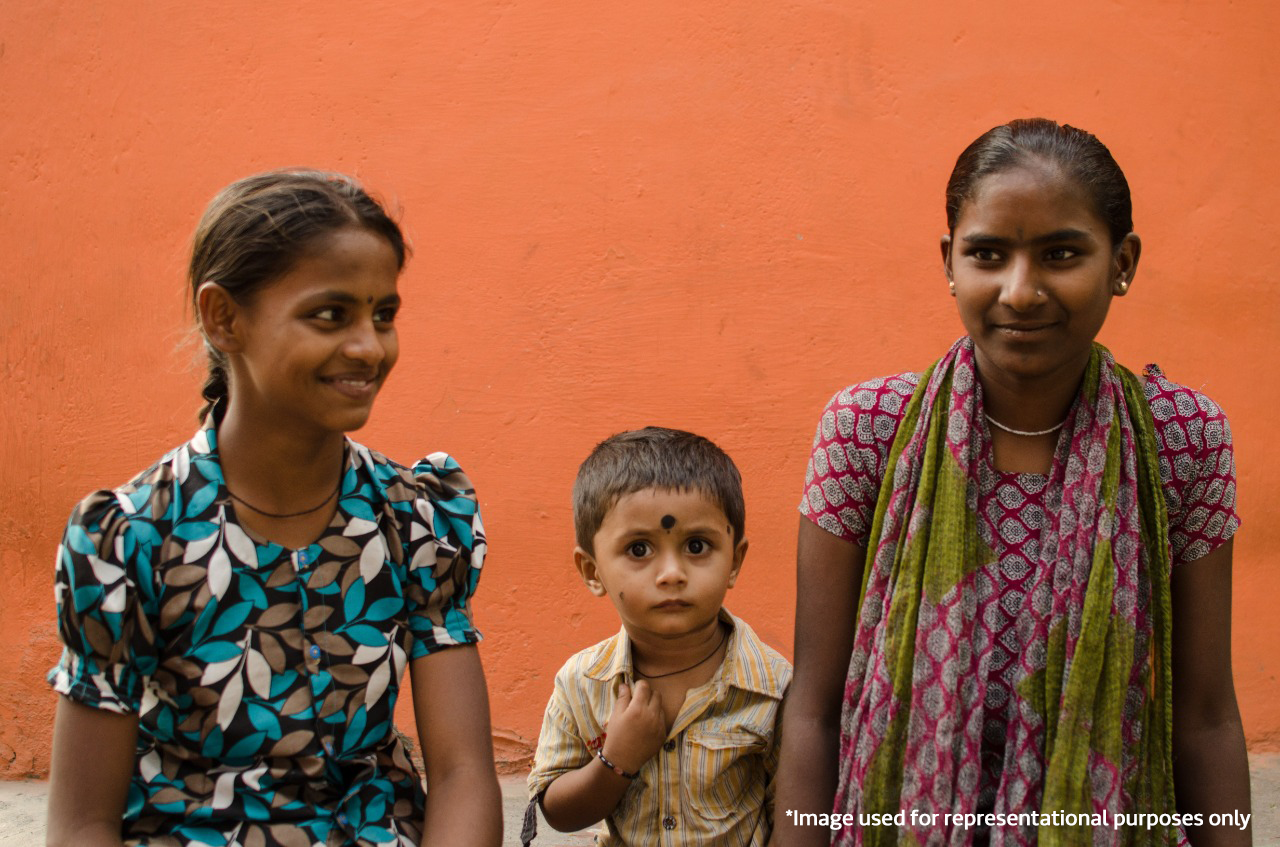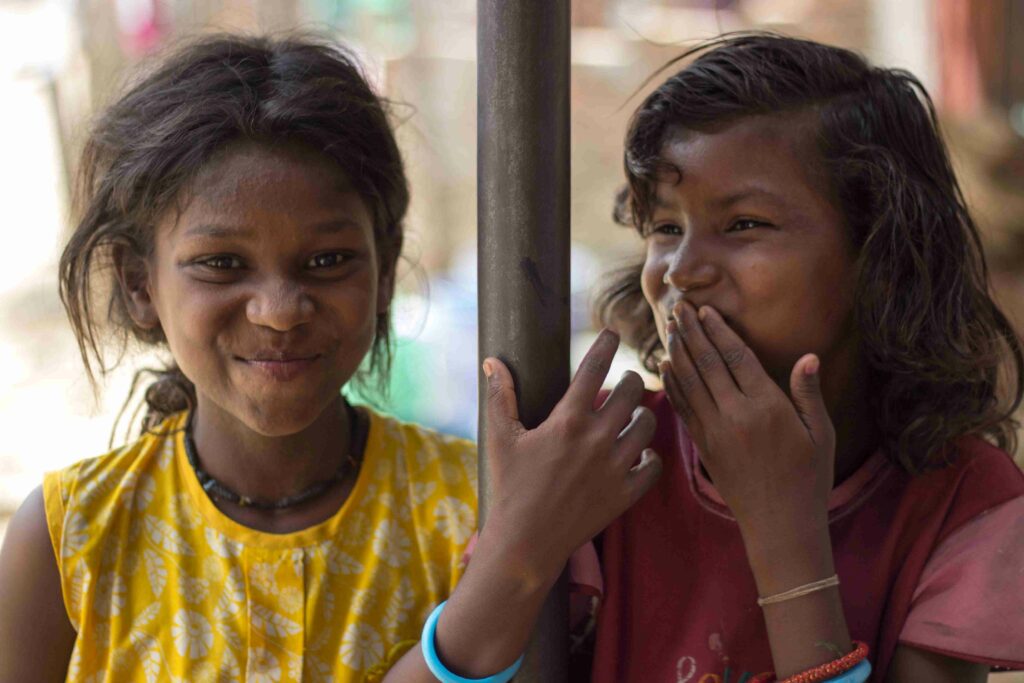
You put Sahana on the path of financial freedom!
When Sahana* tells her story, it’s hard to believe. What she endured is so out of the ordinary and how she overcame her trials is just as remar....
Read MoreThe POCSO Act (Protection of Children from Sexual Offences Act) is India’s law designed to protect children from sexual abuse, harassment, and exploitation. It ensures child-friendly reporting, investigation, and trial procedures, with Special Courts for fast-track cases. The Act is gender-neutral and applies to all children under 18, with severe penalties for offenders. It mandates immediate reporting and provides victims with legal aid, counselling, and rehabilitation. CRY India plays a pivotal role in raising awareness, supporting legal processes, and helping children access protection under the law. Donations to CRY help support child education, healthcare, and protection efforts under the POCSO Act.

The Protection of Children from Sexual Offences (POCSO) Act, 2012, is India’s comprehensive legislation aimed at safeguarding children under 18 from sexual assault, harassment, and exploitation. Recognising the vulnerability of children, the POCSO Child Act establishes child-friendly procedures for reporting offences, conducting investigations, and ensuring speedy trials through Special Courts. The law is gender-neutral, applying equally to all genders, both as potential victims and offenders. By mandating immediate reporting and institutional accountability, the act ensures that every child’s best interests are protected and secondary victimisation is prevented.
Children are among the most vulnerable members of society, and instances of sexual abuse can have long-lasting psychological, emotional, and physical impacts. The POCSO Act is crucial because it provides a structured and legally enforceable framework to protect children from such offences. Before this law, there were significant gaps in reporting mechanisms, investigation procedures, and judicial processes that often retraumatised child victims. By laying down clear guidelines, the POCSO Act bridges these gaps, ensuring that children receive timely protection, support, and justice.
The POCSO child act incorporates several mechanisms to ensure child protection at every stage, from reporting to rehabilitation. Its core features include gender neutrality, detailed definitions of offences, mandatory reporting requirements, and child-centric judicial procedures.
The act emphasises the use of child-friendly mechanisms during reporting and investigation. Statements from children can be recorded at their homes, preferably by a female police officer not below the rank of sub-inspector. Children are never detained in police stations overnight, and all statements are recorded in the child’s own words, assisted by interpreters or experts if required.
Medical examinations must be conducted sensitively. For female children, a female doctor performs the examination in the presence of a parent or trusted adult. Any clothing worn during the incident is preserved and handed over to authorities unwashed, to maintain crucial forensic evidence.
To prevent prolonged trauma, the POCSO Act mandates that cases be tried in Special Courts, which conduct proceedings in-camera to protect the child’s privacy. Children are given the opportunity to take breaks during testimony, and experts provide support to ease the judicial process. These courts are designed to ensure swift, fair, and child-sensitive adjudication.
The POCSO Act places responsibility on both the police and Child Welfare Committees (CWCs). Police must immediately register complaints and investigate in a manner that safeguards the child. CWCs play a vital role in ensuring the child’s welfare, providing counselling, rehabilitation, and monitoring the child’s recovery process. Institutions are also legally mandated to report offences against children under their care, creating multiple layers of accountability.
Also Read: Girls Problem
The act defines a range of offences, including:
Penalties are severe. Penetrative sexual assault carries a minimum of 10 years imprisonment, potentially extending to life, along with fines. In cases involving child pornography, the minimum sentence is five years, increasing for repeat offences.
Under the POCSO Act, consent is legally irrelevant for children under 18; any sexual activity with a child is considered non-consensual and punishable. This legal clarity ensures that children cannot be coerced or blamed for abuse, reinforcing the protective intent of the act.
The POCSO Act ensures children are protected at every stage: reporting, investigation, trial, and post-trial rehabilitation. By establishing child-friendly procedures, mandatory reporting, and legal accountability, the law safeguards children from secondary victimisation and facilitates access to justice. Victims are entitled to free legal aid, compensation, and professional support, which are crucial for their emotional and psychological recovery.
Also Read: Child Rights
Incidents of abuse can be reported directly to the police, Child Welfare Committees, or through trusted institutions such as schools and hospitals. Immediate reporting is encouraged, and failure to report can result in legal penalties for institutions.
Once a report is filed, police are required to register the case and begin an investigation promptly. Evidence is collected sensitively, witnesses are recorded, and the child receives continuous support. Cases are then brought before Special Courts for a speedy and confidential trial. Throughout the process, the child’s rights and welfare are paramount, and professional counselling is provided to mitigate trauma.
Despite the law’s provisions, awareness remains a significant challenge. Many children, parents, and even professionals are unaware of the POCSO Act and its procedures, leading to underreporting. Geographic and socio-economic barriers further hinder access to justice, particularly in rural and marginalised communities.
Effective implementation requires training for police, judiciary, teachers, and healthcare professionals. Strengthening Child Welfare Committees, increasing awareness campaigns, and ensuring accessible reporting mechanisms are critical steps to bridge gaps in enforcement and support.
Also Read: Protein Energy Malnutrition
CRY India plays a key role in promoting awareness and strengthening child protection policy under the POCSO Act. By engaging with communities, schools, and institutions, CRY educates children and adults about the law, their rights, and safe ways to report abuse. The organisation advocates for stronger systems and policies to protect children, and supports them in accessing legal aid and government protection services. CRY also works closely with Child Welfare Committees and other authorities to ensure timely counselling, safety, and continued support for every child through their recovery.
Individuals can contribute by donation, volunteering in awareness and education initiatives, or partnering to strengthen child protection programmes. Supporting CRY India directly contributes to safer environments for children and effective enforcement of the POCSO Act.
Support child education through CRY India and help children stay in school, learn well, and dream big.
Also Read: Malnutrition
Consent is legally irrelevant for anyone under 18. Any sexual activity with a child is automatically considered non-consensual.
The POCSO Act was created to provide a comprehensive legal framework for protecting children from sexual abuse, harassment, and exploitation, ensuring child-friendly reporting, investigation, and trial procedures.
Schools and communities can educate children about personal safety, recognise signs of abuse, provide safe reporting channels, and collaborate with law enforcement and NGOs like CRY India to create protective environments.
CRY India raises awareness about the POCSO Act, provides legal aid and counselling, and supports children through rehabilitation programmes, ensuring that vulnerable children receive protection and justice.
Also Read: Types of Child Trafficking